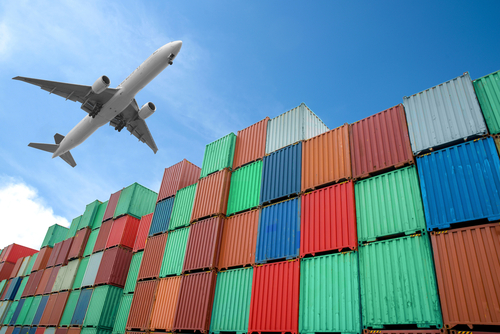As with all logistics industries, air freight is now facing the disruption of digitalization. Although digitalization offers significant benefits, from cost cutting to enhanced efficiency, many air freight forwarders have been slow to adopt digitalization in their own operations. Much of the industry is still heavily traditional, dominated by traditional channels like telephone and email.
However, there are major risks to ignoring digitalization. Below are three important things to know about digitalization that may prompt air freight forwarders to shift gears in 2019.
Digitalization is necessary to compete in today’s market
According to a report from McKinsey & Company, the digitalization of traditional forwarders is being driven by three different sources: carriers, digital forwarding specialists and already-digitalized forwarders.
Carriers are putting pressure on forwarders by utilizing digital technologies, which cut costs and enable more personalized customer service, to win smaller customers from forwarders. Digital forwarders with automated processes, increased market transparency and a wider range of service are also winning customers over traditional forwarders. Lastly, digital forwarding specialists with data based services such as track-and-trace and booking platforms that provide transparency throughout the value chain are nudging all forwarders toward digitalization.
Air freight forwarders who maintain their traditional front-end and back-end processes will be left behind – if they aren’t already – as digitalization infiltrates the majority of the air freight industry.
Customer behavior and expectations are changing
Air freight forwarders need to be aware of the changing expectations and behavior of their customers in order to fulfill their needs and remain competitive. McKinsey & Company have also pointed out that small and medium sized shippers are increasingly shifting toward online channels, including searching for freight forwarding services online; volumes of related Google searches have increased by 16% annually since 2014.
However, while demand for online bookings has risen significantly, only a few companies are currently offering digital booking. As such, these companies are capturing the vast majority of sales originating online. Additionally, only 60% of forwarders and carriers are offering online registration, and even less provide online quotes.
Freight forwarders who address customers’ changing preferences for digital services will succeed over those who do not.
Service quality and brand strength is more important than pricing
Despite a common perception among forwarders, the digitalization of air freight is not expected to result in a race to the bottom on pricing. Many feel that because digitalization will lead to increased transparency, forwarders will have to compete based on price – resulting in all companies substantially lowering their pricing.
However, research does not support this theory; in 2018, Sea Intelligence Consulting found that 49% of cargo owners did not go for the cheapest offer at the time of booking. Instead, brand and service strength were found to be a bigger factor in customers’ decision. As such, forwarders should focus on developing their branding and enhancing their services in order to sway customers, rather than simply offering the lowest price.


